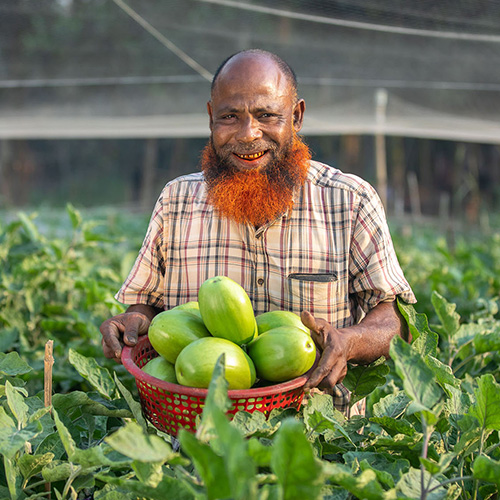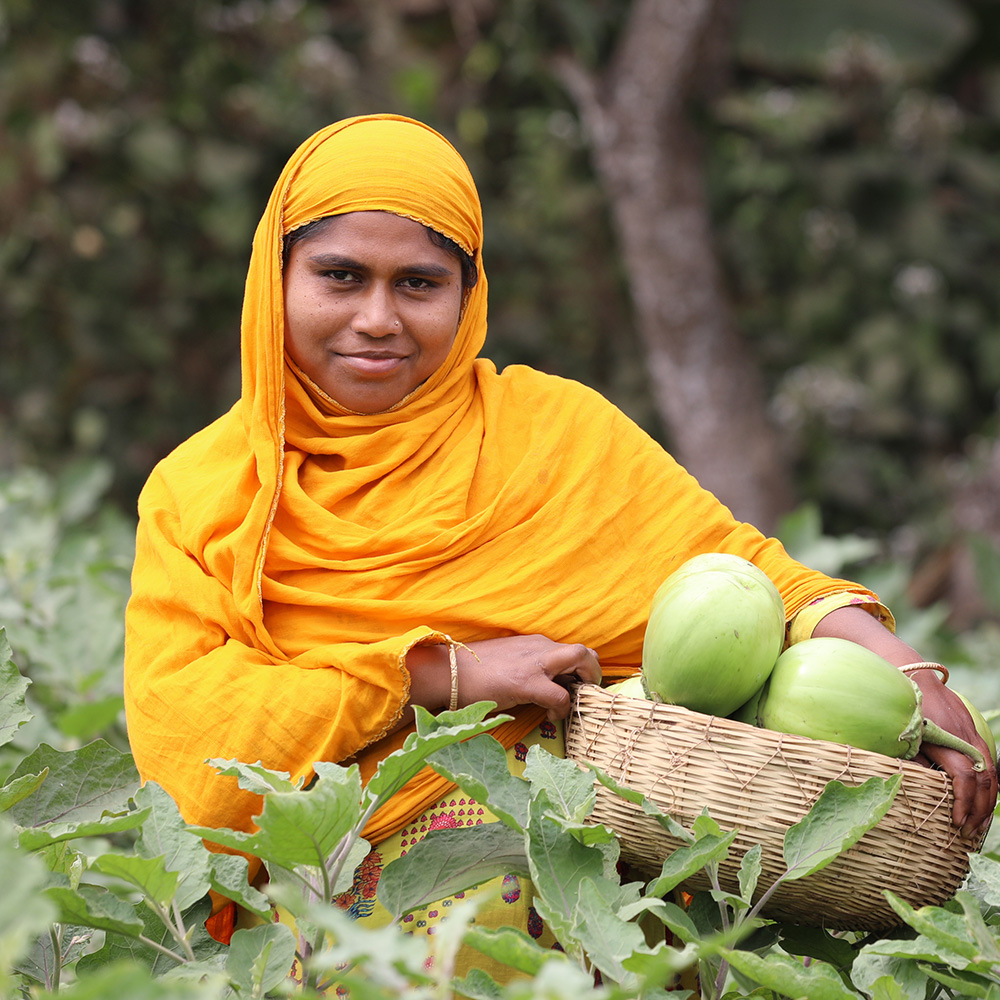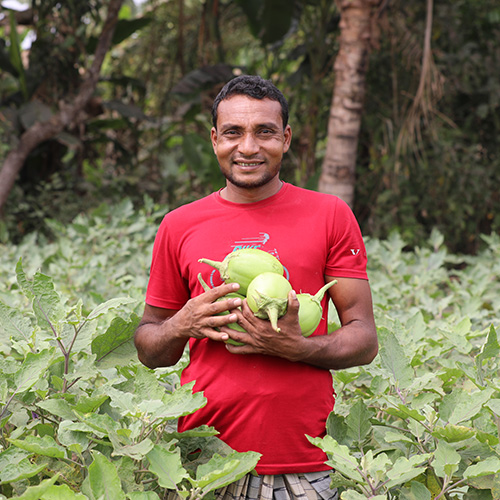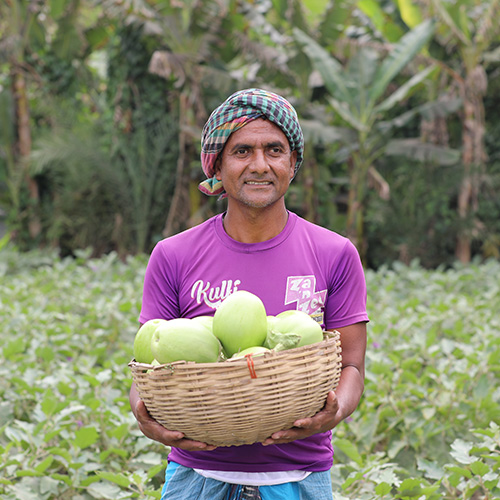Azhar Ali Mondal has always seen agriculture as more than a livelihood—it is a legacy for future generations. At 52, with over 20 years in farming, Azhar is well-acquainted with the demands of growing vegetables in Bangladesh. But his first venture into Bt eggplant has opened new doors for him and sparked a fresh vision for his family’s future.
Having grown crops like tomatoes, bananas, and chilies, Azhar faced frequent pest issues, especially with traditional varieties of brinjal, as eggplant is known locally. But in 2023, on the advice of an agricultural extension officer, he decided to plant Bt brinjal on about one acre of land. The impact was immediate. “I have not had to deal with pests like before,” he shared. “Bt brinjal has grown without heavy pesticide use, which makes a huge difference.”
For Azhar, one of the most significant benefits of Bt brinjal is its health impact. “One issue with pesticides is that they enter our bodies. By eating brinjal without pesticides, we stay healthier. That is why I took everyone’s advice and chose to cultivate this variety,” he explained. Knowing his family can eat his harvest without worries about harmful chemicals has been deeply reassuring.
Beyond health benefits, Bt brinjal has brought Azhar pride and financial security. The improved income has enabled him to support his household and his grandchildren’s education, all while securing a future in farming. “I want my grandchildren to be educated and have good jobs, but also to stay connected to the land,” he said thoughtfully.
The high quality of his Bt brinjal has impressed customers. With traditional eggplant often damaged by insects, he had to accept lower prices at the market. “But Bt brinjal fetches a much better price,” he said. With Bt brinjal’s success, Azhar has seen higher market returns. While other varieties might earn him around 800 BDT (approximately $6.70 USD) per maund (equal to about 37 kilograms, or roughly 82 pounds), Bt brinjal initially sold for 1,200 BDT (about $10 USD) per maund and eventually rose to 1,400 BDT (around $11.70 USD) due to strong demand.
Inspired by his success, Azhar hopes that more farmers will have access to Bt brinjal and similar innovations. He has seen how it has transformed not only his life but also his community, as other farmers, including his niece and uncle, have also started planting this crop. This year, with support from the Bangladesh Agricultural Research Institute (BARI), five farmers in his area received resources to start growing Bt brinjal, and Azhar has already requested expanded support for more farmers next season.
Looking ahead, Azhar plans to double the amount of land for growing Bt brinjal. “Agriculture has given me and my family so much. With Bt brinjal, I see a future where farming is not just a job but a path to health and prosperity for the next generation,” he said.










